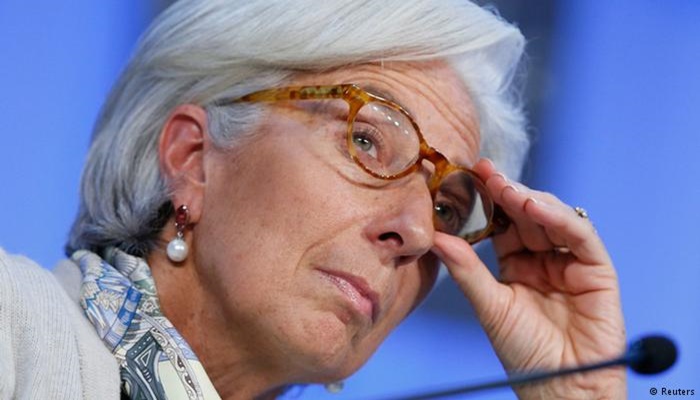IMF cuts global growth to 3.7 %
…Says there are clouds in the horizon
…Nigeria, Angola, S/A holding Africa down
The International Monetary Fund (IMF) has cut global growth projection to 3.7 per cent for this year and next.
The new projection was announced by the IMF Economic Counsellor and Director of Research Department, Mr. Maurice Obstfeld at a press briefing on the World Economic Outlook (WEO), in Bali, Indonesia on Monday.
The new projection is a marginal reduction of the 3.9 per cent projection of last April’s World Economic Outlook report.
Mr. Obstfeld said, “The latest World Economic Outlook report projects that global growth will remain steady over this year and next, at last rate of 3.7 percent. This growth exceeds that achieved in any of the years between 2012 and 2016, and it occurs as many economies have reached or are nearing full employment and as earlier deflation fears have dissipated.
“Thus, policy makers still have an excellent opportunity to build resilience and implement growth-enhancing reforms.
“Last April, at the time of our last World Economic Outlook, the world economy broad-based momentum led us to project a 3.9 percent growth rate for both this year and next.
“Considering developments since then, however, that number now appears overoptimistic. Rather than rising, growth has plateaued at 3,7 percent. There are clouds on the horizon.
“Growth has proven to be less balanced than we had hoped. Not only have some downside risks that the WEO identified been realised, the likelihood of further negative shocks to our growth forecast has risen. In several key economies moreover, growth is being supported by policies that seem unsustainable over the longer term. These concerns raise the urgency for policymakers to act”.
According to him, the report showed that the negative revisions for emerging markets and developing economies would be more severe, at minus 0.2 and 0.4, respectively. Specifically on the African continent, Mr. Obstfeld said that growth was been held down by Africa’s three largest economies of Nigeria, South Africa and Angola. His words,
“The aggregate growth rate for the continent is held down by the fact that the three largest economies are not performing up to their potential. Nigeria’s growth, 1.9 percent this year, 2.3 next year. South Africa, 0.8 per cent this year. Angola, contracting by 0.1 percent this year.
“The aggregate (for Africa) over 3 percent this year, close to 4 percent next year- is despite the largest economies in the continent doing poorly. “The continent could do better once these economies are on a more solid footing, particularly South Africa and Nigeria because they are really large and affect a number of countries in their neighbourhoods.”
The IMF put growth in the advanced economies at 0.1 percent lower, including downgrades for the Euro area, the United Kingdom and Korea.
“These revisions are also geographically diverse, encompassing important economies: in Latin America, notably India, Brazil and Mexico. In Emergin Europe, notably Turkey. In South Asia, notably India. In East Asia notably Indonesia, Malaysia and Philipines.
“In the Middle East, Iran. And in Africa, South Africa,” the director said. He noted that although petroleum exporting countries such as Nigeria , Kazakhstan, Russia, Saudi Arabia, “are going to benefit from higher prices, broadly speaking, we see signs of lower investment in manufacturing , coupled with weaker trade growth.”
Regarding the effects of the trade policy issues between the United States of America and China, the IMF Research Director said that it led the Fund to downgrade the forecast for China’s growth in 2019, especially given the tariffs that America has already imposed on about $200 billion imports from China.
Credit: Vanguard




